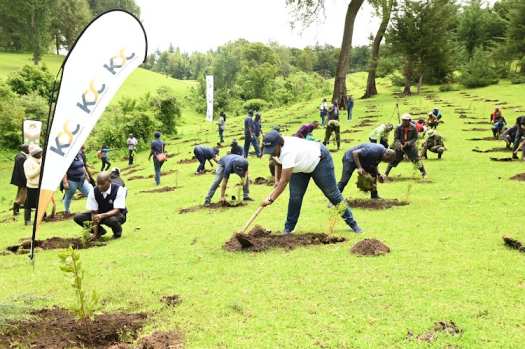President William Ruto’s plan to grow 15 billion trees by 2032 is facing major setbacks due to a wide funding gap, raising doubts over the State’s ability to meet its ambitious target of raising Kenya’s tree cover to 30 percent.
Budget documents show that by the end of June, only Sh4 billion had been spent on the project, accounting for just 0.8 percent of the Sh500 billion needed in the ten-year period.
This shortfall has already left a gap of more than Sh100 billion in just two years, exposing the heavy reliance on lenders and private players who are expected to finance over 60 percent of the programme.
The tree initiative, launched in 2022, is anchored on two major projects: a Sh200 billion plan under the Kenya Forest Service (KFS) and a Sh300 billion tree-growing and rangeland restoration project.
But according to the Controller of Budget (CoB), the government only spent Sh507.6 million on the restoration project in the year to June 2025, while the KFS plan received no allocation.
“The original budgetary allocation to the State Department for Forestry in FY 2024/2025 amounted to Sh13.06 billion, revised to Sh12.22 billion in Supplementary Estimates III, compared to Sh13.53 billion allocated in FY 2023/24,” CoB Margaret Nyakang’o said in her report.
The office also noted that 75,789 seedlings were produced and 116 hectares of seed sources maintained during the year.
The KFS 2023–2027 strategic plan estimates that Sh218 billion will be required over five years to drive the tree-growing and restoration efforts. The plan includes the production of 15.5 billion seedlings by different actors, rehabilitation of degraded forests, and fencing of natural forests.
According to KFS, partners and stakeholders are expected to produce about eight billion seedlings, KFS itself 1.6 billion, other State agencies two billion, and private nurseries four billion.
Despite the scale of the plan, KFS expects less than a quarter of the Sh218 billion requirement, Sh49.7 billion to come from the government.
“Thus, resources required to fully implement the strategic plan operations are insufficient,” KFS noted in the document.

